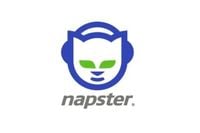Napster, the brand that was once synonymous with music piracy, has been sold to immersive technology company Infinite Reality for $207 million. This acquisition marks a significant turning point for the platform, which is set to undergo a major transformation into a social music hub where artists can engage directly with their fans.
Originally launched in 1999 by Shawn Fanning and Sean Parker, Napster quickly became the first major peer-to-peer file-sharing service, disrupting the music industry and igniting a wave of legal battles. The service was ultimately shut down in the early 2000s after facing lawsuits from the record industry, including a high-profile case with the band Metallica. In 2011, the brand was revived when Rhapsody acquired and rebranded it as a subscription-based music service.
Fast forward to March 25, 2025, and Infinite Reality is poised to take Napster into a new era. The company's ambitious plans include creating virtual 3D spaces for fans to attend concerts, introducing new monetization tools for artists to sell both digital and physical merchandise, and providing enhanced analytics to help musicians better understand their audience.
In a statement regarding the acquisition, Napster CEO Jon Vlassopulos emphasized the need for innovation in the music streaming space. "The internet has evolved from desktop to mobile, from mobile to social, and now we are entering the immersive era," he said. "Yet, music streaming has remained largely the same. It’s time to reimagine what’s possible.”
Infinite Reality aims to prioritize active fan engagement over passive listening, positioning itself as a leader in the next phase of music consumption. The company will leverage its expertise in immersive technology to allow artists to build interactive environments where fans can enjoy virtual concerts. This strategy not only aims to enhance the user experience but also to create new revenue streams for artists.
Alongside virtual concerts, the reimagined Napster will introduce features such as virtual merchandising and AI-powered customer service. These advancements are designed to help artists manage their communities more effectively and optimize their sales strategies.
Historically, Napster has gone through several ownership changes, each attempting to redefine its role in the digital music landscape. Infinite Reality's acquisition comes at a time when the streaming market is dominated by giants like Apple Music and Spotify, making differentiation essential for survival. Previous attempts to reinvent Napster, including a merger with MelodyVR, have struggled to establish a viable business model.
Despite the challenges, Infinite Reality's vision for Napster is ambitious. The company plans to bridge fan communities through its existing audience network, which draws from e-sports and gaming. This approach could potentially create a more vibrant and interconnected platform for music lovers and artists alike.
As the music industry continues to evolve, the question remains: can Napster reclaim its place in the hearts of music fans? With its rich history and a fresh perspective under Infinite Reality, the brand is set for a significant comeback. The reimagined Napster may not return to its rebellious roots, but it could become a major player in the future of music and the metaverse.
In summary, Napster's journey from a notorious file-sharing service to a subscription model, and now to an immersive social music hub, showcases the platform's resilience and adaptability. The upcoming changes could not only redefine how fans interact with music but also how artists monetize their work in an increasingly digital world.







